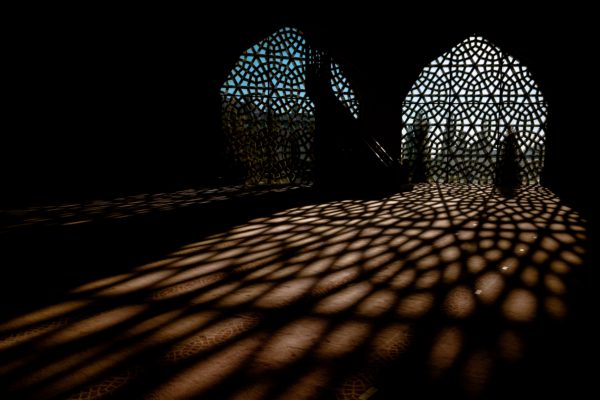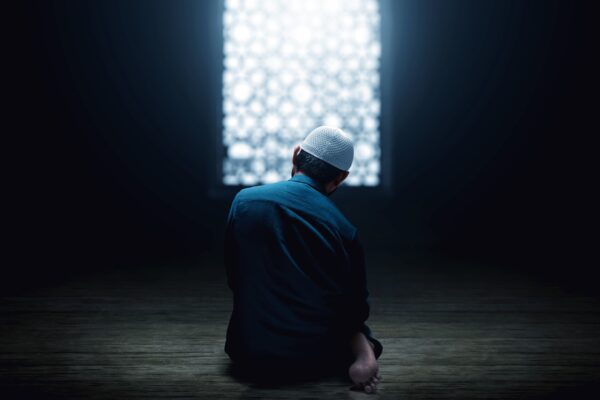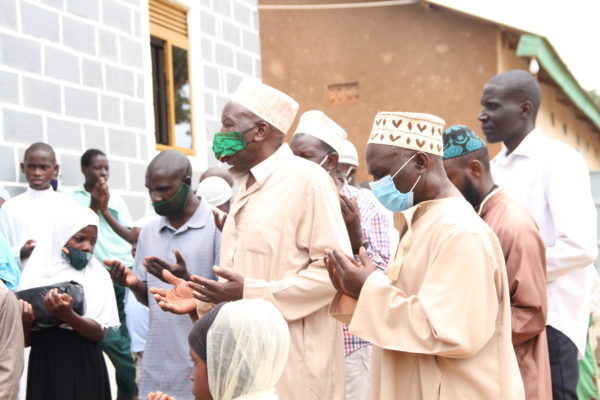Here’s everything you need to know about Laylatul Qadr, from its background, and history to recommended acts!
Here’s everything you need to know about Laylatul Qadr, from its background, and history to recommended acts!
Laylatul Qadr, or the Night of Power, is a special night during which Muslims believe that the fate of humanity is decreed. It is believed to fall on one of the odd-numbered nights during the last ten days of Ramadan, and many Muslims stay up all night praying and reciting the Qur’an on this night in the hopes of earning Allah’s blessings. Laylatul Qadr is a time of intense spiritual reflection, and it is often seen as an opportunity to reset one’s relationship with Allah. For Muslims, it is a night of immense importance and one that should be spent in prayer and contemplation.
In this article, I break down everything you need to know about Laylatul Qadr.
what happened on laylatul qadr?
All Muslims unanimously accept that the Holy Qur’an was revealed on the blessed night of Qadr. The differences arise as to what extent the Qu’ran was revealed. There are three main opinions.
1. The Revelation of the Holy Qur’an began on Laylatul Qadr
Muslim scholars of this opinion state that the Qur’anic revelation began on this holy night but the entire Qur’an was not revealed (in the way we have it today).
They cite the following two verses to back up the claim:
The month of Ramadan, in which was sent down the Qur’an.”
(2:185)
and
We have indeed revealed it (the Qur’an) in the night of decree (Laylatul Qadr).”
(97:1)
The Holy Qu’ran itself alludes to it being a gradual revelation. Surah Furqan, verse 32 states:
And those who disbelieve say: why has not the Qur’an been revealed to him all at once? Thus, that We may strengthen your heart by it and We have arranged it well in arranging.”
The fact that the disbelievers are asking this question shows the Qu’ran was never revealed to the Prophet all at once, either on Laylatul Qadr or any other day, in the form of a book.
Furthermore, this group bring forward intellectual arguments:
- If the entire Qu’ran (the book version) was given to the Prophet on the first-ever Laylatul Qadr, why does the Qu’ran use the past tense when talking about certain events that would be happening in the future? For example, in Surah ale-Imran, verse 123 God talks about the battle of Badr in the past tense: “God had helped you at Badr, when you were a small force.” If the whole Qu’ran came on Laylatul Qadr (before the battle of Badr took place) surely the verse should say “God will help you at Badr, where you will be a small force.”
- The Qu’ran has the concept of abrogated and abrogating verses. This is where one ruling is cancelled in place of another ruling. The classic example being of alcohol. Initially, the Qur’an tells people to not pray whilst they are intoxicated and later on bans intoxicating substances in their entirety. This group questions the need for abrogating verses if the Qur’an came all in one go on Laylatul Qadr – why not exclusively include only the final version of the law and leave it at that?
The whole argument sounds pretty convincing, right? There are, however, some flaws in their intellectual reasoning and only one who has a deep understanding of the Arabic language will see it. Take the following verse:
God has given examples of disbelievers: the wives of Noah and Lot who married two of Our righteous servants but betrayed them. Their husbands could not help them against God: it was said, ‘Both of you enter the Fire with the others.”(66:10)
2. A Portion of the Holy Qu’ran is Revealed Every Laylatul Qadr
The people who abide by this opinion say that a portion of the Qu’ran is revealed all at once on every Laylatul Qadr with the Prophet gradually revealing the verses to the public over the course of the year before another portion comes down on the next Laytaul Qadr. This group uses the same verses (2:185 and 97:1) to back up their claim.
However, in chapter 97 (which is Surah Qadr), in the first verse, Laylatul Qadr is mentioned using a definitive article i.e. The Night of Power. The verse states:
We have indeed revealed it (the Qur’an) in the night of decree (Laylatul Qadr).”
(97:1)
The use of ‘the’ indicates the Qu’ran came down to the Prophet on a specific Laylatul Qadr and not on all of them. If it did come down on all of them, the verse would say something like: “We have indeed revealed it (the Qu’ran) on the nights of decree.”
3. The Qu’ran Has Two Stages of Revelation: Instant and Gradual
The most plausible and popular opinion is a combination of the first two opinions. The essence of the Holy Qur’an is not the book we have today. The book is merely the form the Qu’ran takes in the worldly domain. Its real essence cannot be comprehended and is beyond material laws. As a result, this groups opinion is as follows:
- The Qur’an was revealed in its entirety to the heart of the Prophet on Laylatul Qadr. The book wasn’t given to him but a spiritual form of the Qu’ran settled into his heart.
- The book version of the Qu’ran was then revealed gradually across 20 or 23 years.
The Sunni scholar Suyuti says this is the most correct and well-known view and many traditions support it. For example:
Ibn Abbas is reported to have said: The Qur’an was revealed instantenously, on the night of decree, to the earthly heaven, where it was kept in the abode of honour (bayt al-izza). Thereafter jibrail would bring down to the Prophet portions of it in response to the questions and actions of the people. This process of gradual revelation lasted for 20-23 years.
(al-Itqan)
The Shia scholar Kulyani brings evidence to a similar effect. Quoting a hadith attributed to Jafar as-Sadiq, Muslim scientist, scholar and spiritual leader, and 6th Shia Imam:
Al-Sadiq was asked: The Qu’ran was revealed within a span of twenty years, then why did God say it was revealed in the month of Ramadan? As-Sadiq replied: The Qu’ran was revealed in one instant to the abode of immortality (bayt al ma’mum), after which its revelation took 20 years.”
(Bihar al-Anwar).
Very deep concepts are being mentioned here. The general understanding is that the overall concepts of the Qu’ran nestled in the heart of the Prophet and later revealed in word and sentence form as and when the need arose.
The significance of laylatul qadr in contemporary times
The revelation of the Qu’ran has obviously stopped, so why is there still so much emphasis on Laylatul Qadr? Surah Qadr answers this:
Indeed, We sent down the Qu’ran during the Night of Decree
And what can make you know what is the Night of Decree?
The Night of Decree is better than a thousand months
The angels and the Spirit descent therein by permission of their Lord for every matter
Peace it is until the emergence of dawn.
On Laylatul Qadr the destiny of every man, child and woman is decided for the upcoming year. Whether you’re trying to build your connection with God, get married, have a child or get a job – this is THE best night to ask for it.
When is laylatul qadr?
To decipher the date of Laylatul Qadr, we need to seek guidance from hadith literature. The Prophet doesn’t give us a clear date but alludes to it. Narrated by Aisha in Bukhari:
Allah’s Messenger said: Search for the Night of Qadr in the odd nights of the last ten days of Ramadan.”
According to Sunni narrations, Laylatul Qadr is most likely to fall on 27th of Shahr Ramadan. According to the Shia, it is one of three dates: 19th, 21st or 23rd Shahr Ramadan with 23rd Ramadan being the most likely. These dates coincide with the martyrdom of Ali ibn Abi Talib so Shias also mourn his passing on these nights.
Why the Prophet didn’t give an exact date only he knows. Perhaps he wanted to leave us guessing so we spend the final days of Shahr Ramadan in as much worship as possible!
The night of Qadr starts at maghrib adhan and ends at fajr adhan.
What are the recommended acts in laylatul qadr?
There are plentiful actions recommended on this holy night. The night is better than 1,000 months. What this means is any act performed this month is better than doing it over 1,000 times on non-Laylatul Qadr nights – a great opportunity to pick up extra points! Here are some of the recommended acts.
Voluntary Prayers
Recommended prayers are one of the best things you can do on this night. One two rakah prayer done on this night is as if you’ve done it for over 1,000 months! There are a variety of extra prayers you can do such as:
- Tarawih
- Salatul Layl
- A two rakah prayer with a specific intention such as to be forgiven for all sins or on behalf of a deceased person.
Sadaqah
It’s highly advisable to give charity every night of the last 10 days of Shahr Ramadan. Donating online is all good but there are also other ways to get involved such as through volunteering, teaching or contributing to a sadaqah jariyah project. If your khums or zakat is due, now’s the perfect time to settle the account.
Supplications
Supplications are our conversations with God. Don’t worry too much about the language or the style you speak to God in – focus on speaking to him sincerely and genuinely. Tell Him about your goals, ambitions and sins and make a sincere intention to draw a line and start fresh. If you are looking for specific supplications, you can:
- Dua Kumayl – a supplication for seeking forgiveness.
- The daily Shahr Ramadan Dua for the day you’re in.
- Dua Jawshan Kabeer – this is a very special dua taught to the Prophet at the Battle of Badr. In that battle, Prophet Muhammad was using heavy armour to protect himself. The armour was overbearing so Gabriel came down and took the armour and gave the Prophet this dua to recite in its place as a protection from bad events.
Recite Qur’an
Recite as much Qu’ran as you can! I’d highly recommend focusing on quality over quantity. Don’t stress so much about how much you read but try and make sure the amount you do read is done with understanding. Try and extrapolate action points from the verses that you can apply in your daily life. Moreover, don’t make reciting the Qu’ran reserved for this night only. Make a commitment to make it a part of your daily life from here onwards. There are no specific surahs to recite although narrations say the following are recommended:
- Surah Qadr – for obvious reasons!
- Surah Al-`Ankabut
- Surah Al-Rum
- Surah al-Dukhan
Keep us in your prayers on the holy night of qadr
I pray this article about the background, history and amaals of Laylatul Qadr was helpful. Please keeps the success of The Muslim Vibe in your duas throughout the holy nights!





